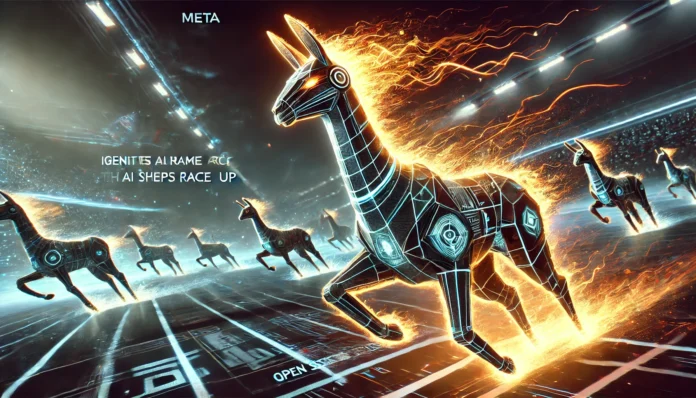The artificial intelligence landscape witnessed a significant tremor today, April 17, 2025, as Meta officially unveiled its next-generation large language model family, Llama 3. This highly anticipated release marks a major stride in the open-source AI movement, positioning Meta’s latest creation as a formidable challenger to leading proprietary models like OpenAI’s GPT series and Anthropic’s Claude 3.
Meta has launched two initial versions of Llama 3: an 8-billion parameter model (Llama 3 8B) and a 70-billion parameter model (Llama 3 70B). According to Meta AI’s announcements, both models represent a substantial leap over their predecessor, Llama 2. The company highlights significant improvements across key areas including reasoning capabilities, code generation, instruction following, and overall helpfulness. This boost in performance is attributed to advancements in pre-training and post-training techniques, alongside a vastly expanded and curated training dataset reportedly exceeding 15 trillion tokens – seven times larger than that used for Llama 2 and incorporating four times more code.
Performance benchmarks released by Meta paint an impressive picture. The Llama 3 8B model is claimed to outperform other open models of similar size, such as Mistral 7B and Google’s Gemma 7B, on standard benchmarks like MMLU (Massive Multitask Language Understanding), HumanEval (code generation), and GSM8K (math word problems). More strikingly, the Llama 3 70B model is presented as competitive with top-tier closed models like Claude 3 Sonnet and potentially even Gemini 1.5 Pro on several benchmarks, representing a significant achievement for an open-source model of this scale. Meta asserts that these models deliver state-of-the-art performance for their respective parameter counts.
True to the Llama lineage, Meta is releasing these initial Llama 3 models with a permissive open-source license, making them broadly available for research and commercial use. This commitment to open access stands in contrast to the more restricted approaches of some competitors and is likely to galvanize the global developer community. By providing powerful base models, Meta empowers researchers and businesses worldwide to build upon, fine-tune, and deploy advanced AI capabilities without the constraints or costs associated with proprietary APIs.
The integration strategy for Llama 3 is ambitious. Meta plans to embed these models across its suite of applications, including WhatsApp, Instagram, Facebook, and Messenger, powering a significantly enhanced AI assistant called «Meta AI.» This assistant aims to be more conversational, context-aware, and capable of performing complex tasks, from real-time search integration to content generation. Furthermore, Llama 3 is expected to enhance experiences on hardware like Ray-Ban Meta smart glasses.
The release of Llama 3 significantly intensifies competition in the AI sector. It puts pressure on closed-model developers by offering a high-performance, openly accessible alternative. For the open-source community, it provides a new state-of-the-art foundation to build upon, potentially accelerating innovation across various domains. However, the rapid advancement also brings renewed focus on the ethical considerations and potential risks associated with increasingly capable AI models, demanding robust safety protocols and responsible deployment practices, which Meta claims to have prioritized during development.
Looking ahead, Meta has indicated that the 8B and 70B models are just the beginning. Larger models, reportedly exceeding 400 billion parameters, are still in training and promise even greater capabilities, including multimodality (the ability to process and understand information beyond text, such as images and audio).
In conclusion, Meta’s launch of Llama 3 is more than just an incremental update; it’s a bold statement about the potential of open-source AI and a significant recalibration of the competitive dynamics in the field. As developers and researchers begin to explore its capabilities, the true impact of Llama 3 on innovation, accessibility, and the future direction of artificial intelligence will unfold.




